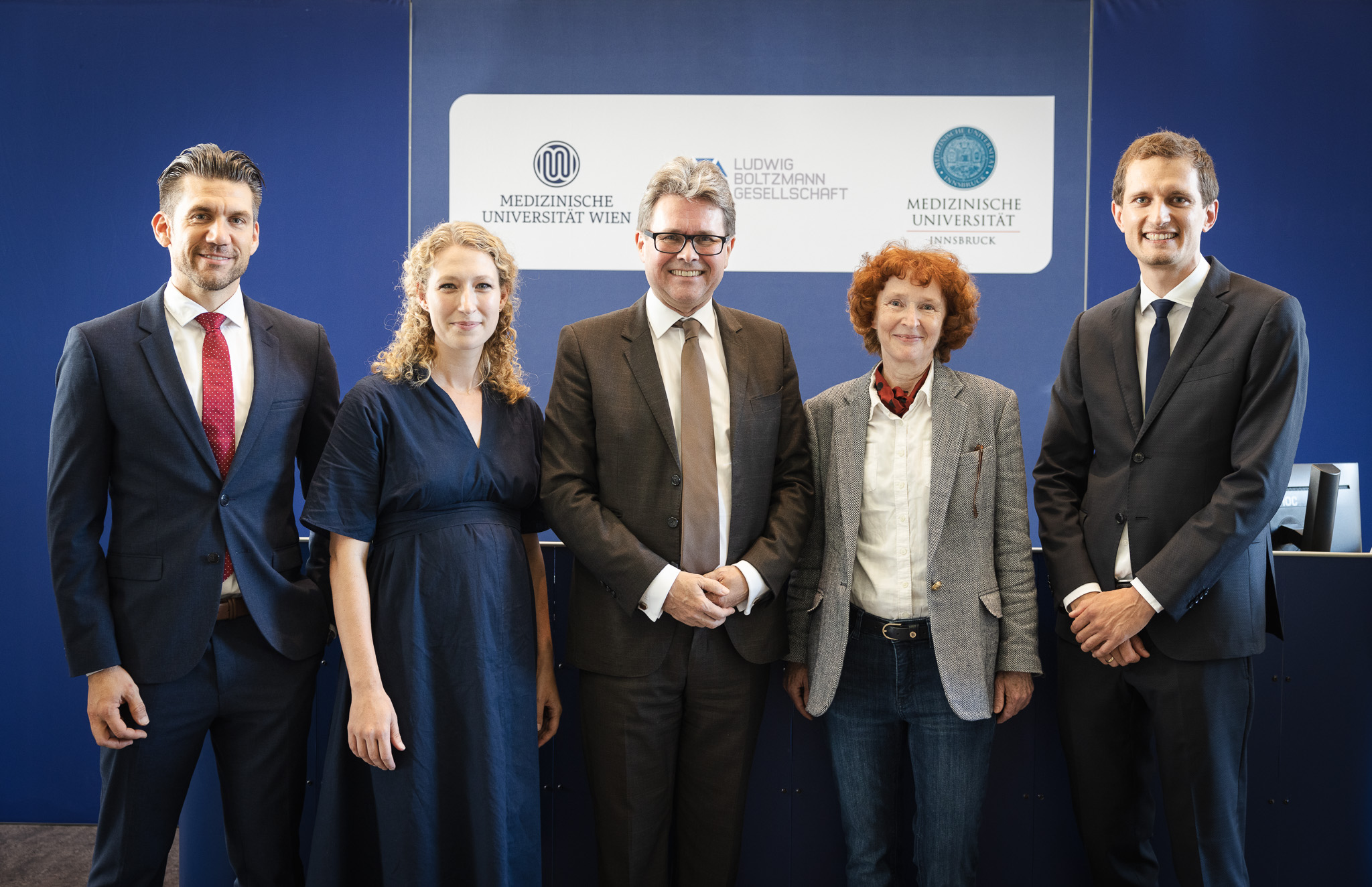
Overview
The CRG is Austria’s first funding programme in the field of non-commercial disease- and patient-oriented (translational), consortium-based clinical research.
The Call
Important dates
-
- Publication of Call Documents: June 28th, 2024
- Opening of Online Portal for Submission: mid-August 2024
- Application deadline for short applications: October 10th, 2024
- Deadline for full applications (by invitation only): March 17th, 2025
- On-site interviews: May 2025
Forms on the website (“Downloads”) are provided for preparation of the application. Applications can only be submitted via the LBG submission portal eSubmission from mid-August 2024.

Scientific Remit
This call for proposals for LBG Clinical Research Groups (CRG) aims to support larger collaborative research programmes with a strong focus on patient-oriented, medically important topics in the field of non-commercial clinic research. CRG supports the development of innovative research results in disease- or patient-oriented investigator-driven clinical studies with the possibility of integration of translational aspects. Simultaneously, the programme aims to promote high-quality scientific training of young clinical researchers within the framework of a clinical research group by means of research programme. One third of the available funding volume is dedicated to cancer research in accordance with the EU Cancer Mission.
A coherent research programme should be presented that is structured into work packages or sub-projects, and meets the following criteria:
- be innovative and of high quality in the field of disease and patient-oriented research, and develop diagnostic and/or therapeutic methods,
- at least 50% of the proposed work must be carried out at medical universities/faculties,
- present investigator-initiated clinical trials (phase I-III) or other non-commercial clinical studies in combination with clinical pilot or accompanying studies (observational, longitudinal studies, epidemiological studies, biobanking, biomarker studies, patient outcome studies, proof of concept studies, etc.),
- meet the standards of good clinical practice,
- demonstrate an interdisciplinary, synergistic collaborative attitude between clinical and non-clinical team members,
- promote career development of young researchers/clinicians and address gender equality issues.
Eligibility
The main applicant of a CRG, the Lead Institution, must be an Austrian medical university/faculty with an affiliated university hospital.
The Lead Institution is asked to team up with one or more cooperation partners (e.g. public or private universities, universities of applied sciences, hospitals and/or non-profit academic research institutes) to form a consortium that must represent different disciplines.
CRG Composition
A CRG comprises of the following personnel:
- one Mentor*,
- one Head*,
- one or more Sub-Project Manager(s), of which one or more Deputy Head(s)* have to be appointed, as well as
- researchers and additional team members.
* employed at Lead Institution
Each CRG hosts between 5 and 12 directly funded individuals.
Funding Volume and Duration
- Call budget of the Call 2024/25:
24.08 Mio EUR (8.32 Mio EUR by BMBWF, 15.76 Mio EUR by FZÖ)
Around one third of the total funding volume is dedicated to cancer research. - Funding Call 2024/25:
0.52 – 1.04 Mio EUR per annum for projects dedicated to cancer research
0.4925 – 0.985 Mio. EUR per annum for all other topics
Max 90% of the total costs of the CRG are funded, participating institutions must contribute min 10% of the total costs of the CRG in-kind. - Duration: 4 + 4 years (after successful interim evaluation)
Selection Process
Two-stage call: Short proposals are evaluated by an international Scientific Expert Commission that will select applicants to submit full proposals. Full proposals will be peer-reviewed and applicants will subsequently attend on-site interviews with the Scientific Expert Commission.
Scientific Expert Commission
The Scientific Expert Commission provides strategic and operational support for programme development and the review process. It comprises highly distinguished international scientific experts:
- Prof. Liselotte Højgaard, University Copenhagen, DK (Chair)
- Dr. Sophie Brouard, University Hospital Nantes, FR
- Prof. Paolo Camici, University Hospital San Raffaele, IT
- Prof. Paul Matthews, Imperial College London, UK
- Prof. Massimo Mazzone, KU Leuven, BE
- Prof. Ruth Plummer, Newcastle University, UK
- Prof. Christoph Schindler, Hannover Medical School, DE
- Prof. Roland Schwarz, University Hospital Cologne, DE
- Prof. Harriet Wallberg, Karolinska Institute, SE
Application Process
Call Directive and Specifications
Forms for preparation of application – Short Proposal Phase
Evaluation form Short Proposal Stage (information only)
Online Application Portal
Further Information and Contact
Programme Management – Clinical Research Groups
Neda Motamedi-Shad, PhD
Telefon: +43 (0) 1 513 27 50-45
Bettina Lengger, PhD
Telefon: +43 (0) 1 513 27 50-71
Mail: xst@yot.np.ng






